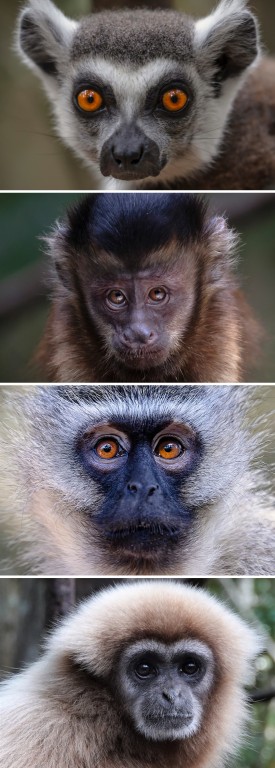In a Nutshell
Monkeyland is the world’s first free-roaming, multi-species primate sanctuary, offering "monkey safaris" to see 11 species of primate and over 550 primates. The sanctuary features a 128-meter suspension bridge for unique forest views, as well as a restaurant and gift shop. Multilingual tours are available.
Primates at Monkeyland
Monkeyland cares for over 550 rescued primates across 10 species.
- Black and White Ruffed Lemur
- Ringtail Lemur
- Red-Bellied Lemurs (arriving in 2025)
- Brown Lemurs (arriving in 2025)
- Bolivian Squirrel Monkey
- Brown Capuchin
- Red-backed Bearded Saki
- Black Howler Monkey
- Vervet Monkey
- Geoffroy’s Spider Monkey
- Hanuman Langurs
- White-Handed Gibbon
Sanctuary Vegetation
Monkeyland is nestled within an Afromontane forest, a rare and biodiverse type of forest found along mountain ranges in Africa. This forest is characterized by its distinct layers: a rich understory of herbs and shrubs, a canopy of medium-height trees, and towering emergent trees that can reach up to 40 meters. Afromontane forests are vital ecosystems, hosting a wide variety of plant and animal species, some of which are endemic and found nowhere else in the world.
Vision
Founded by Tony Blignaut, Monkeyland rescues ex-captive primates from zoos, circuses, and the illegal pet trade. Its broader mission includes helping conserve endangered primate species and providing them with an forever home.
Mission
As part of the South African Animal Sanctuary Alliance (SAASA), Monkeyland is dedicated to raising awareness about true wildlife conservation and educating the public on the harmful impacts of the pet trade. Through the #HandsOffOurWildlife campaign, they advocate for responsible wildlife care and encourage visitors to explore resources like wildchoice.org. In addition, they pioneered the world's first real estate initiative for wild animals, known as the "Buy a Square Meter for the Monkeys" campaign. SAASA also enforces strict no-touch policies to ensure the well-being of all animals under its care.




